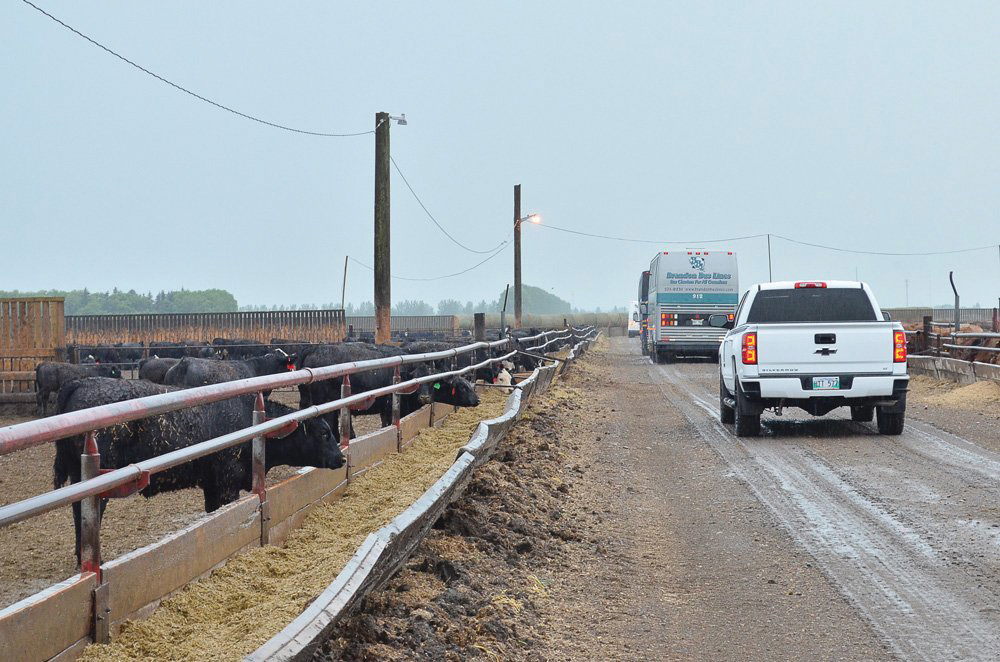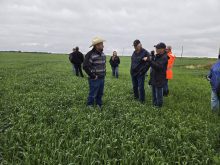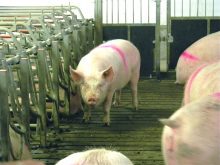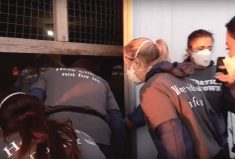Manitoba’s beef sector is feeling the ripples after Cargill announced that its High River beef plant would be shutting down due to COVID-19 cases among staff.
Why it matters: Manitoba’s beef sector might lean heavily towards cow-calf operations, but processing slowdowns out of Alberta have raised concerns over long-term market impacts, as well as sending the province’s relatively few feedlots and backgrounding operations into financial free fall.
Read Also

Mazergroup’s Bob Mazer dies
Mazergroup’s Bob Mazer, who helped grow his family’s company into a string of farm equipment dealerships and the main dealer for New Holland machinery in Saskatchewan and Manitoba, died July 6 from cancer.
Carson Callum, general manager for the Manitoba Beef Producers, says feedlots and backgrounder operations have already felt the financial hit, although long-term impact of the closure is a larger concern for most Manitoba’s beef producers, most of whom are cow-calf operations.
“I think the market volatility that has impacted people out farther west is still impacting some producers in the province and the uncertainty that is leading to such poor markets,” he said. “We think about the large decrease in price moving forward or even any of the futures prices moving into the fall for the fall calf run, when really, that will be an important time for Manitoba producers.”
Norman Anderson, who backgrounds cattle out of his business, Norman Anderson and Sons, near Souris, says this has been the biggest hit for his operation since the BSE crisis.
No cattle are moving off his operation, he said, compared to this time in a normal year when he would expect to move about 10,000 animals within six weeks.
“We could sell our cattle right now,” he said. “But the prices are so bad that, if we did, we would be losing $300 to $400 a head.”
His feedlot has yet to run out of space for animals, he said. The animals he currently has have been moved onto maintenance rations.
The Canadian Cattlemen’s Association (CCA) estimates that feedlots in Canada are taking average losses of $700 a head.
Supply bottleneck
Cargill announced April 20 that it would be temporarily closing the plant in High River, Alta. The news was later compounded by reports that JBS would also be slowing down production of its plant in Brooks, Alta. Combined, the two plants handle about 70 per cent of Canada’s beef capacity.
On April 21, CCA executive vice-president Dennis Laycraft reported the JBS plant was down to processing about 2,000 head a day, compared to 4,000 or 4,500.
The CCA expects that the industry could see up to $500 million in revenue loss by the end of June due to the shutdowns due to impacts from COVID-19.
Laycraft did, however, note work to increase distance between employees and resume operations within the Alberta plants.
Those efforts will be critical to drawing down the backlog of cattle starting to form in the system, he added.
“The sooner we can get plants up and running, the smaller that amount is… the sooner we’ve got all these measures in place, hopefully we can get back to close to normal levels in the near future,” he said.
Seeking solutions
Laycraft has noted efforts to shift some volumes towards provincial meat plants or smaller federally inspected facilities, although no concrete details on those efforts have been released.
Carman’s True North Foods, the only federally inspected meat plant in Manitoba, did not respond to requests for an interview, although Callum noted the business is, “doing its best to keep the cattle moving through our only federal plant.”
“I know that other provinces are looking at this option as well,” Callum said. “But it would take some capital investment to be able to increase the full capacity within our province to meet some of the downfalls that arise when we think of Cargill or JBS or any of those plants going down.”
The CCA has also pushed the federal government for a set-aside program, similar to programs during the BSE crisis.
Under the program, feedlot producers would, “bid to extend the feeding period of cattle up to a maximum of $2 (per) head per day for up to 90 days,” a March 24 release said.
Callum argued that a set-aside program would help offset the costs of buying feed for producers now forced to hold on to animals, especially considering Manitoba’s recent struggle with feed supplies.
“Feed availability, as everyone knows, was already a challenge moving into this,” he said.
Manitoba is coming off its second straight winter of critically low hay yields, while those relying on corn silage also faced challenges last fall after snowstorms delayed harvest. Cool spring weather has done little to assuage the concern, with producers seeing little regrowth in pastures.
Producers like Anderson, however, have argued that the terms of the set-aside program might not be sufficient.
“I’m not so sure about it,” he said. “From what I’ve seen so far, it doesn’t look to be even close to going to cover our losses.”
The backgrounder and feedlot operator sees little choice, however, except to hunker down and wait for market conditions to improve. Anderson expects to keep his cattle on maintenance rations until July or August, at which point he hopes the pandemic has eased and that markets will have recovered. At this point though, it is only that; a hope.
“We’re just hoping that the government will come out with some program that will help us out, because it is very, very, very serious right now,” Anderson said.
In an email to the Manitoba Co-operator, Canadian Agriculture Minister Marie-Claude Bibeau acknowledged the drop in capacity thanks to meat plant shutdowns and said her department is “examining all options to protect workers, support our farmers and processors, and keep high-quality and affordable Canadian meat products available to Canadians.”
Agriculture and Agri-Food Canada also pointed to deferred loan programs out of Farm Credit Canada, extended AgriStability deadlines, efforts to bolster the Canadian Food Inspection Agency, as well as federal programs introduced for small businesses.




















